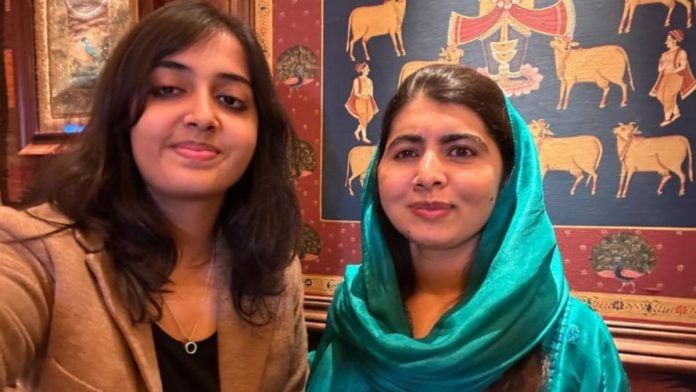Pakistani-origin British teenager, Mahnoor Cheema’s academic feat has left even seasoned educators stunned: 24 A-Levels, all with distinctions, and a place secured at Oxford’s Exeter College. Social media in the UK is buzzing with her story. Her achievement has been hailed as record-breaking, extraordinary, almost unreal. She is not alone, of course.
The most famous example from a similar background is Malala Yousafzai, whose life and work need little introduction. And there are many other young women of Pakistani heritage in Britain carving out space for themselves in classrooms, institutions, and public life. While their success inspires pride and joy, it also raises a difficult question: how much of it is pure talent — undeniable — and how much the culture and environment that nurtured it?
While Pakistani Muslim women can rise to global recognition in countries like the UK, how much of this would be possible back home? Pakistan consistently ranks among the worst in the world on gender equality. According to the World Economic Forum’s Global Gender Gap Report, it sits at the very bottom — 148th out of 148 countries — with a gender parity score of just 56.7 percent, barely above war-torn Sudan. The scale of discrimination is not abstract; it is lived. Consider the phenomenon of “doctor brides”: thousands of Pakistani women who earn medical degrees, only to be confined to domestic roles, their education treated as a marriage asset rather than a professional calling. The waste of talent is staggering, and it is the nation’s loss.
While stories like Mahnoor Cheema’s inspire admiration abroad, in Pakistan, women’s lives are still routinely constrained by violence and oppression. Almost daily, the news carries accounts of honour killings and systemic subjugation. Not long ago, a video went viral showing a couple, Bano Bibi and her husband Ehsan Ullah, executed in the name of “honour.” The footage is chilling; the couple was gunned down in a deserted area, and their bodies were left bleeding on the sand. Tragically, this is far from an isolated incident. According to the Human Rights Commission of Pakistan, over 470 cases of honour killings were reported in 2021 alone. Known locally as ‘karo-kari’, these murders are a brutal reminder of the entrenched patriarchal control over the lives of women in the country.
Also read: Saudi Arabia is changing. It can shape the future of Muslim world
Need for urgent reckoning
Malala Yousafzai’s peaceful life in the UK is itself a reality check on Pakistan’s war on women—a nation built on patriarchy that kills female potential and often endangers their very existence. Saudi Arabia allowed women to perform Hajj independently, but Pakistan still forces them to seek permission from their mahram. Such rules are not just bureaucratic hurdles—they are a reflection of a society that systematically restricts women’s autonomy, treating half its population as dependent and perpetually subordinate. For every case of violence that surfaces in the media, dozens more remain buried—sometimes in graves, sometimes in silence.
The hatred for women runs so deep that even the demand for dignity becomes intolerable. When a handful of women in Pakistan’s cities tried to claim public space through the Aurat March, they faced abuse and mockery. Equality was dismissed as vulgar, and one man even compared the Aurat March participants to Al Qaeda militants.
Against this backdrop, stories like Mahnoor Cheema’s or Malala’s abroad strike with painful contrast: brilliance celebrated in Oxford classrooms might have been suffocated in a Pakistani home before it ever saw light.
The culture and attitude of Pakistani society demand an urgent reckoning. Women should not have to leave their homeland to realise their potential, yet for many, opportunity came only after crossing borders. The tragedy is that while a few may escape, the vast majority of Pakistani women remain trapped within a system that denies them the same chance. What makes it even more disheartening is that instead of transforming their mindset, some continue to export these regressive, suffocating ideas abroad. Even in the UK, so-called honour killings have been carried out by Pakistani families determined to police women’s lives at any cost.
Pakistan’s tragedy is not just in losing its women’s potential, but in refusing to even see that loss as its own destruction. A nation that treats half its people as disposable does not need outside enemies—it carries its own ruin within.
Amana Begam Ansari is a columnist, writer, and TV news panellist. She runs a weekly YouTube show called ‘India This Week by Amana and Khalid’. She tweets @Amana_Ansari. Views are personal.
(Edited by Ratan Priya)




